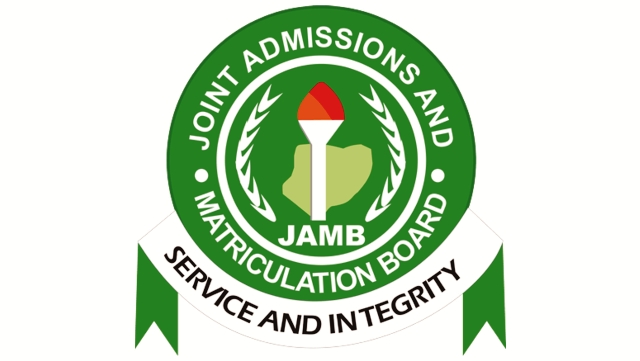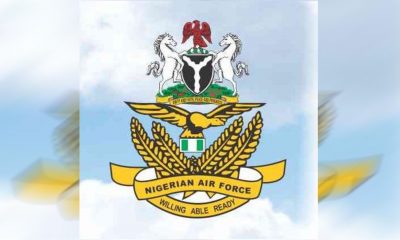Maritime
Beach Master Condemns Block Of Abuloma Waterways
The Beach Master of
Nestoll PLC, Abuloma Jetty, Rivers State, Mr Jeremiah Isaiah Onu has condemned the indiscriminate blocking of the waterways within the area by other marine operators.
Onu, in a chat with The Tide correspondent during a maritime stakeholders safety awareness forum organized by the National Inland waterways Authority (NIWA) held in Port Harcourt said the head on parking of vessels and tug-boats obstructs the waterway as the length of the boat stretches out and block other waterway users plying the route.
According to him, they apply the pattern of mooring by using double banking system and sideways, and called on other vessel, tug-boat operators and marine equipment within the area to ensure that they park their vessels in accordance with world best practices so that they would not block the waterways.
He said the situation is pathetic when there is low tide as some of the barges cross the Abuloma creek, thereby making it difficult for other boat users to pilot their boats with utmost diligent and risk, adding that there is need to educate them on mooring inorder not to obstruct the waterways for all marines.
The Beach master disclosed that the company is expecting to construct a floating dock after the pilling inorder to have a permanent jetty, pointing out that renovation of the Nestoil Jetty is in progress inorder to get a permanent one for better operations.
On the company, Community relationship Onu said it has been very cordial and commended the Managing Director of the company, Dr Ernest Azudi Alu and the management for employing many Niger Delta indigenes and giving the host community its quota of employment, and enjoined him not to recent for better business atmosphere.
“With the employment of Niger Delta people, criminality had been reduced and most people especially the youths now have meaningful livelihood. I want him to stand firm and others to emulate the company activities, he said.
The Beach master also commended NIWA for the safety awareness campaign as many of the seafarers and marine operators are better educated on the need to operate with safety at all times and solicited for quarterly organization of the programmes.
Meanwhile, the former secretary of the maritime workers union of Nigeria (MWUN), Okrika branch, comrade Otimi Success Ogwara, has called on the authorities to remove all wrecks within the Port Harcourt – Abuloma – Okrika water route to enable boat operate freely within the waterways.
Ogwara appealed to NIWA to sweep the waterways as well as dredge it as it had been difficult for boat operators to play the route during low ebb, and thanked NIWA for the safety campaign.
Collins Barasimeye
Maritime
Twenty-Four-Hour Port Operations Achievable, If -Nweke

The former President of the Nigeria Association of Government Approved Freight Forwarders (NAGAFF), Dr. Eugene Nweke, has said that only a political will would make the 24-hour port operations achievable.
Nweke made the disclosure during the Fifth Town Hall meeting organised by JournalNG held in Lagos on Thursday.
“24 hour port operations is achievable if government would give a clear order to the effect.
“Government should get a regulatory agency to supervise port operations accurately for monitoring and evaluation.
“Once everyone knows what to do, operators will be guided. It will not be a situation where government issues port order without monitoring and no enforcement.
“So, we need a political will to drive our ports for 24-hour port operations in Nigeria”, Nweke said.
He said government agencies should see the transformation as a necessity, same as port stakeholders.
Nweke continued that collaboration and partnership among stakeholders would enable both government and port users achieve 24-hour port operations.
He said any identified bottlenecks delaying the achievement of 24 hours ports operations should be removed and sanctioned accordingly.
He noted that port communities are meant for commercial activities, adding that necessary infrastructure should be considered in the ports to avoid unnecessary human element.
Nweke urged government to improve on infrastructure to make the ports more attractive and friendly for customers.
Also in his presentation, the Chairman, Nigeria Ports Consultative Council (NPCC), Mr. Bolaji Sunmola, said quest to actualise 24-hour port operations in Nigerian seaports was no longer aspirational but necessary.
He said with a carefully sequenced strategy anchored on technology, sustainability, and stakeholder alignment, Nigerian ports could be positioned as efficient, secure, and economically transformative assets.
As Chairman of NPCC, he reaffirmed commitment to this vision by inviting all stakeholders-MDAS, port terminal operators, energy providers, transport unions, and investors to join in executing this transformation.
The Assistant Comptroller, Nigeria Customs Service (NSC), Abass Oladepo, said Customs had been operating 24 hours port operations.
He said at Ports and Terminal Multi Services Ltd. (PTML) command the Customs had commenced 2-hour cargo clearance, adding that averagely in one-year the Command had achieved less than 6-hour ports clearance.
The town hall meeting was to sensitise stakeholders on Customs transformation known as B’Odogwu and urge importers to engage in honest declaration to enable them achieve few minutes cargo clearance.
In his contribution, the Managing Director, ENL Consortium, one of the terminal operators, Mr. Mark Walsh, urged Nigeria banks attached to ports cargo clearance operations to improve their operation to avoid delays in payments.
He commended the Federal Government and the Nigerian Ports Authority for modernising the ports, adding that there was need for 24-hour lighting at the ports, to stop them from running generators 24/7.
He noted that ports operation needs more lighting, especially for security during the night operations.
The General Manager, Trade Modernisation Project (TMP), Mr. Ahmed Ogunsola, urged stakeholders to collaborate and point out challenges hampering 24 hour port operations to provide solutions.
Ogunsola said TMP worked with the NCS to enhance cargo clearance by providing technology backbone, building capacity and to enhance sustainability.
He said 24 hour port operations was achievable with the collaboration of port users.
“The TMP had agreement with the Federal Government to provide 67 scanners and presently we have successfully brought five scanners into the country to modernise Nigeria Customs Service and facilitate trade”, Ogunsola said.
In his opening remarks, the Publisher, JournalNG magazine, Mr. Ismail Aniemu, said the forum gave the stakeholders opportunity to interact and come with recommendations to guide government in policy making.
Aniemu said many ports in Nigeria need to turn to smart ports, adding that Nigeria had competent expertise that would assist government to actualise the dream.
He said some of the port users were operating 24 hours and there was need fornit to be sustained collectively.
Maritime
Rice Smuggling Still Increasing In Creeks – RMIDN

Local rice merchants, under the aegis of Rice Millers, Importers and Distributors of Nigeria (RMIDN) have expressed displeasure over the upsurge in the smuggling of rice into the country through neighbouring Cotonou, Benin Republic.
According to RMIDN, Nigeria has lost an estimated N60 billion as a result of rice smuggling.
“Mostly Indian and Thailand rice that are imported into Cotonou find their way into Nigeria illegally with Western Creeks serving as gateway to the highest degree of these illicit imports”, RMIDN said.
Speaking exclusively with The Tide in Lagos, the Chief Executive Officer, Bayuf Farm limited, Chief Kabiru Idowu, noted the large scale concealment in trucks purportedly laden with dutiable goods to the fleet of vehicles under the cover of darkness, saying “Western Marine Creeks, is indeed a place to watch, if the economy of the nation must be protected”.
According to him, “the volume of imports for which revenue is lost on the part of the government may far outweigh the generated revenue and create an adverse affect on government policy to encourage local production of some products.
“It would also be recalled that in December, 2024, the Customs Area Controller, Federal Operations Unit, Compt. Kola Oladeji, disclosed to journalists at a briefing in the Command that smuggling of rice through the Western Creeks is on the increase, thereby placing a question mark on the proficiency of the Marine Command of the Customs.
According to him, the areas of water which flows into the land accounts for a higher degree of rice smuggling, adding that there is inlet through water behind Alaba market where smugglers are coming, with various items but with rice topping the lists.
Also, Mr. Tapenu Michael noted that importers of Nigeria bound goods through the Cotonou Port see the western waterways as most viable entry point either for evasion or concealment of prohibited items.
He emphasized that most items that fall under Federal Government import prohibition list or statutory barred from entering the country through land borders find their ways through the creeks.
Maritime
Truckers Raise Alarm Over NPA’s Call-Up System

The Nigerian Association of Road Transport Owners (NARTO) has issued an urgent call to the Nigerian Ports Authority (NPA) management and handlers of the eto electronic call-up system, urging immediate action to address what they describe as unfriendly policies hampering the direct delivery of cargo from the Lagos Port.
According to the Chairman of NARTO Metropolitan Unit, Abdullahi Moh’d Inuwa, the new policies under the eto call-up system have led to significant delays in truck approvals and discouraged truck operators from servicing the port.
“Direct delivery of cargo requires between 48 to 54 trucks daily per vessel, and with multiple vessels, at least 120 to 150 trucks are needed.
“However, the current approval process is slow, and many truckers now prefer loading outside the port due to the multiple levies and restrictions imposed”, Inuwa stated.
He warned that these developments threaten the business interests of consignees and importers, with many considering diverting cargo to other ports.
“Trucks are being forced to offload inside sheds, incurring extra charges and demurrage, which are eventually passed on to end users. Despite government efforts to reduce duties on agricultural products, the call-up process remains a major bottleneck”, he added.
The trucker said prompt intervention is crucial to restore confidence and ensure the smooth evacuation of cargo, which is vital for Nigeria’s import-dependent economy.
Truckers and port users have repeatedly complained about extortion by security agencies, racketeering in the call-up system, and policy inconsistencies that have resulted in gridlock, delays, and financial losses.
Industry sources confirm that the current system often favors certain operators, leaving others stranded and forcing importers to pay exorbitant fees to favours revalidate delivery orders.
NARTO is calling for a review of the eto call-up system to ensure fairness and efficiency, warning that continued inefficiencies could lead to further congestion, trade disruptions, and a shift of cargo traffic away from Apapa Port.
The association also appealed to security agencies to stop the harassment and extortion of truck drivers, and urged the NPA to harmonize safety requirements to avoid multiple taxation.
By: Stories by Nkpemenyie Mcdominic, Lagos
-
Politics1 day ago
Bayelsa APC Hails Late Buhari As Change Agent In Nigerian Politics
-

 News1 day ago
News1 day agoShettima, Atiku, Obi Attend Buhari’s Fidau Prayer In Daura
-

 News1 day ago
News1 day agoJAMB Uncovers 9,469 Fake Admissions In 20 Tertiary Institutions
-

 News1 day ago
News1 day agoNAF Disowns Recruitment Adverts, Says It’s Fake
-
Nation1 day ago
Alumni, Others Launch Campus Care Initiative In Port Harcourt
-
News1 day ago
Rivers Chief Judge Frees 21 Awaiting Trial Inmates
-
Politics1 day ago
Natasha’s Counsel Writes Senate Over Court Judgment
-
Nation1 day ago
NIPR Practitioners Urge To Go Beyond Traditional Media Relations To Strategic Leadership Functions

